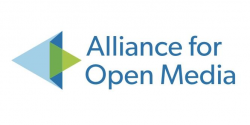Weekly News Roundup (December 3, 2017)
Welcome to the last months of 2017. It has really flown by, hasn’t it? I’ve found a way to judge how busy I’ve been in a year, simply by the amount of binge worthy TV that I’ve managed to miss. So if you’ve still got Black Mirror Season 3, Stranger Things Season 2 and other similar shows in your watch queue, it must mean you’ve had a super busy year.
Was it a super busy week in terms of news? Kinda. Let’s go through it and see what happens.
![]()
New research shows that Netflix may not be the cure-all for the piracy problem after all. The study compared households with a known piracy track record, and tried to see if there was a change when half of the households were given a free subscription to an unnamed VOD service. The results weren’t that promising, with only a small change in the downloading habits of those given free subscriptions.
The main problem? Most of the shows and movies people wanted to watch simply weren’t on the SVOD platform they had access to. Anyone who uses Netflix will know this is not a lie.
When asked given what’s available on Netflix, how much these households were willing to pay, most said an amount that was nowhere near what Netflix needs to cover its costs – only $3.25 USD. And even then, these households were still going to continue pirating.
So while it seems that SVOD alone isn’t the answer to the piracy problem, when combined with digital sell-through and fairer pricing for all content, the piracy problem may not be as difficult to solve as this research suggest. Plus, there is one major phenomenon that the study may have failed to account for – and that is how SVOD *changes* one’s viewing habits over time.
Speaking from personal experience, having access to Netflix, Australia’s own Stan and Hulu has dramatically changed how I consume content. It used to be that I would buy lots of DVDs and Blu-rays (but usually when they’re on sale – rarely would I buy a new release). Now, if I can wait for a movie to get onto one of the SVOD platforms, I would. For the movies that I really want to see right away, I would go see it at the cinemas, or when all else fails, buy it on Blu-ray.
I’m also now spending much more of my free time viewing original productions on Netflix, Stan and Hulu, to the point where I’m skipping a lot of content that, in the past, I would have bought on Blu-ray (when they were on sale). The content that I’m skipping would usually be the so-so movies with average ratings that, I’m curious about, but definitely not in the must-see category (there’s plenty of content on Netflix that falls into this category, so I’m never really out of stuff to watch). Even some blockbuster movies, ones that did well at the box office, might fall into this category as well.
So if other people can change the way they consume content, to be more patient with new releases, to consume more of the original productions, and to be willing to skip a lot of “not so great” content, then piracy should come down thanks to Netflix and other SVOD platforms. It will take time though for this to happen, something a quick study like this one might not be able to account for.
======
A small followup to a story I covered a few weeks ago. It seems the latest version of Denuvo is working again to offer publishers some protection, since it’s been a month and Assassin’s Creed: Origins still remains uncracked, along with some other A-list titles like Star Wars: Battlefront II that uses the same updated version of Denuvo. So the cat and mouse game begins again, even though the cat (or is it the mouse) has the upper hand for now.
![]()
The HEVC hegemony is being challenged by a newcomer – AV1. Officially known as AOMedia Video 1 (with AOMedia standing for Alliance for Open Media), it’s a next-gen codec that promises to be even more efficient than HEVC. And Mozilla, one of the founding members of the Alliance, has just added AV1 support to the latest beta version of Firefox.
Tests so far have confirmed that AV1 is at least as efficient as HEVC, and probably more so. With software giants Microsoft, Internet giants Google, Amazon, Facebook, Netflix and computing icons IBM, Intel all backing the Alliance, it’s easy to see why AV1 might just prove to be the real thing (or at least more real than VP9).
The problem though, is the lack of hardware support for AV1 at the moment. Encoding is a pain in the ass right now, 150 seconds of encoding just for 1 second of AV1 video, and without hardware decoding support, anyone playing AV1 files on their mobile devices will soon run out of battery. But these things take time, and the hardware support will come (especially with Intel on board).
So why the need for AV1? It’s in the name, really – the Alliance for *Open* Media. Nobody wants to get tied to a royalty heavy codec like HEVC, so if there’s an open source, royalty free alternative, it will be warmly embraced, especially by open source developers like Mozilla.
While I’m here, I also wanted to address the strange emphasis on Apple in the CNET article I linked to above. While Apple has embraced HEVC in iOS 11, it’s by no means the first company to embrace HEVC, nor does it have some kind of stake in its success. In fact, one might say it is one of the last to fully embrace the format, what with Netflix, Amazon all using HEVC, and with support for it mandatory for 4K TVs and Ultra HD Blu-ray. And Android has had decoding support for it since Android version 5.0. So it’s not so much as AV1 taking on Apple, as AV1 taking on an established format that, I’m sure if AV1 was successful, the likes of Apple would be more than happy to add support for.
======
And we reach the end of another WNR. Hope it was an interesting read for you all. See you next week!


